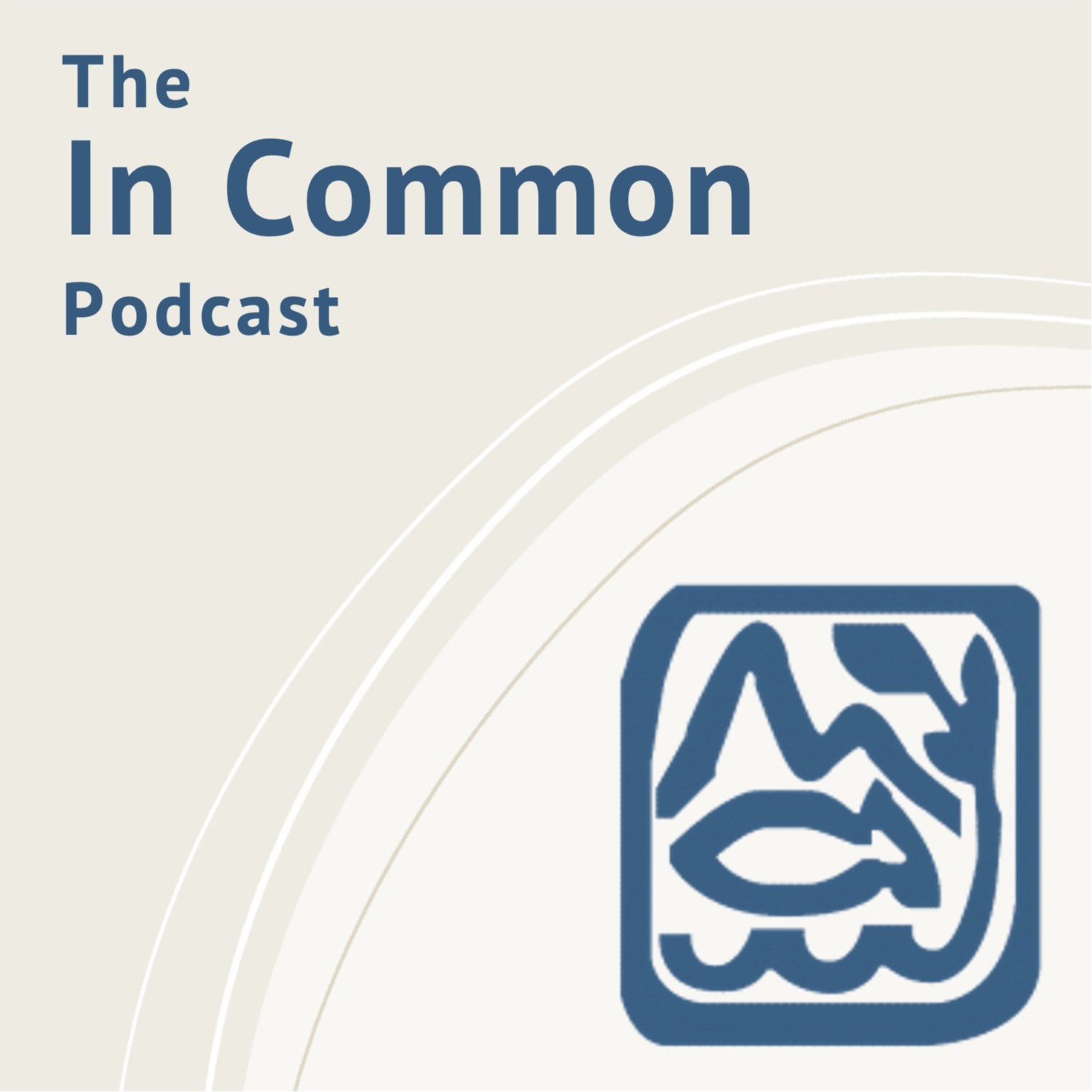
105.2K
Downloads
238
Episodes
In Common explores the connections between humans, their environment and each other through stories told by scholars and practitioners. In-depth interviews and methods webinars explore interdisciplinary and transdisciplinary work on commons governance, conservation and development, social-ecological resilience, and sustainability.
In Common explores the connections between humans, their environment and each other through stories told by scholars and practitioners. In-depth interviews and methods webinars explore interdisciplinary and transdisciplinary work on commons governance, conservation and development, social-ecological resilience, and sustainability.
Episodes
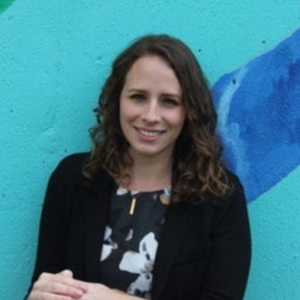
Friday Apr 15, 2022
Insight Episode #35: Jessica Gephart on seafood trade discrepancies
Friday Apr 15, 2022
Friday Apr 15, 2022
This insight episode comes from full episode 052, Michael and Stefan's conversation with Jessica Gephart.
Jessica is an Assistant Professor of Environmental Science at American University. Her research focuses on feedbacks between globalized food systems and the environment.
In this episode, Jessica talks with Michael and Stefan about how the different ways that seafood catch and commodities are reported leads to discrepancies in trade data numbers, and the complexity of untangling the different trade pathways to get a clearer picture of global seafood trade.
Jessica's website: http://www.jessicagephart.com
In Common website: https://www.incommonpodcast.org
Connect with us on Twitter: https://twitter.com/InCommonPod
Support us on Patreon: https://www.patreon.com/incommonpodcast

Monday Apr 11, 2022
092: Sustainable development with Kaitlin Cordes
Monday Apr 11, 2022
Monday Apr 11, 2022
In this episode, Michael speaks with Kaitlin Cordes, an international lawyer and researcher who focuses on human rights and sustainable development. Most recently, Kaitlin spent eight years developing and leading the Columbia Center on Sustainable Investment's work on land, agriculture, food systems, and human rights. Prior to that, she worked at Human Rights Watch and as an Advisor to the UN Special Rapporteur on the right to food. Kaitlin and Michael talk about Kaitlin’s work at the Center on Sustainable Investment, which included projects focused on land tenure and human rights as well as coffee commodity chains. The conversation concludes with a discussion about Kaitlin’s latest project, 31 days of climate action. This is a project focused on the personal, incremental, and intentional ways that each of us can confront the challenge of climate change and the psychological toll that it can take on us.
Websites:
Kaitlin’s website: https://www.kaitlincordes.com/
31 days of climate action: https://www.31daysofclimateaction.com/
Apps that Kaitlin mentions:
Climate Action Now
Earth Hero
References:
Giridharadas, A. 2018. Winners take all: the elite charade of changing the world. Alfred A. Knopf.
Lewis, M. 2014. Flash Boys: A Wall Street Revolt. W. W. Norton & Company.
Nicholas, K. 2021. Under the sky we make: How to be human in a warming world. GP Putnam’s Sons.
Thaler, R. H., and C. R. Sunstein. 2009. Nudge: Improving Decisions about Health, Wealth, and Happiness. Penguin.
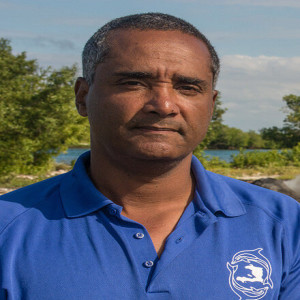
Monday Apr 04, 2022
091: Marine conservation in Haiti with Jean Wiener
Monday Apr 04, 2022
Monday Apr 04, 2022
In this episode, Michael speaks with Jean Wiener, the founder and director of the Foundation for the Protection of Marine Biodiversity, or FOPROBIM. Jean and his organization have worked for decades on marine conservation in Haiti, where Jean has played a critical role in helping to establish a group of marine protected areas. In 2015, Jean was awarded the Goldman Environmental prize in recognition for his work. Jean talks with Michael about his career path and his work to develop marine conservation in Haiti, both formally and from the bottom up. They discuss the challenges that Jean has confronted and continues to deal with under often difficult social and political conditions, and what he hopes for in the future.
FOPROBIM website: https://www.foprobim.org/
Link to Jean’s Goldman prize award: https://www.goldmanprize.org/recipient/jean-wiener/
Video about Jean’s work: https://www.youtube.com/watch?v=BFSGdGvpQ4U
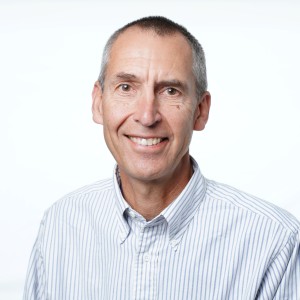
Friday Apr 01, 2022
IJC#5: Guiding would-be institutional crafters with Jim Sinner
Friday Apr 01, 2022
Friday Apr 01, 2022
In this IJC episode, Frank van Laerhoven has a conversation with Jim Sinner.
Together with Marc Tadaki, Edward Challies, Margaret Kilvington, Paratene Tane, and Christina Robb, Jim co-authored a recent IJC publication entitled Crafting Collective Management Institutions in Messy Real-World Settings: A Call for Action Research.
The article deals with how we can give guidance to prospective, or would-be institutional crafters and collective management enablers. And in order to address that question the researchers apply an explicit action research approach with commoners not as subjects or respondents but as co-researchers.
In the conversation we discuss some of the codes of conduct for commons researchers that are based on Jim’s research, such the need to get alongside people on the ground, to engage with social identities, and to put social justice at the center of what we do.
Jim’s work aligns with other work that we have published in the International Journal of the Commons, work that engages with critical institutionalism, for example. If this topic interests you, you may want to check out the following titles, also:
- Cleaver, F., & De Koning, J. (2015). Furthering critical institutionalism. International Journal of the Commons, 9(1).
- Funder, M., & Marani, M. (2015). Local bureaucrats as bricoleurs. The everyday implementation practices of county environment officers in rural Kenya. International Journal of the Commons, 9(1).
- Ingram, V., Ros-Tonen, M., & Dietz, T. (2015). A fine mess: Bricolaged forest governance in Cameroon. International Journal of the Commons, 9(1).
- Jones, S. (2015). Bridging political economy analysis and critical institutionalism: an approach to help analyse institutional change for rural water services. International Journal of the Commons, 9(1).
- Marin, A., & Bjørklund, I. (2015). A tragedy of errors? Institutional dynamics and land tenure in Finnmark, Norway. International Journal of the Commons, 9(1).
- Saunders, F. (2014). The promise of common pool resource theory and the reality of commons projects. International Journal of the Commons, 8(2).
- Van der Kooij, S., Zwarteveen, M., & Kuper, M. (2015). The material of the social: the mutual shaping of institutions by irrigation technology and society in Seguia Khrichfa, Morocco. International Journal of the Commons, 9(1).
- Verzijl, A., & Dominguez, C. (2015). The powers of water-user associations: on multiplicity, fluidity, and durability in the Peruvian Andes. International Journal of the Commons, 9(1).
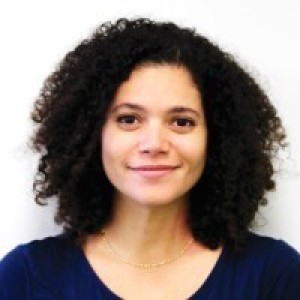
Wednesday Mar 30, 2022
Insight #34: Beatriz Dos Santos Dias on modeling and historical ecology
Wednesday Mar 30, 2022
Wednesday Mar 30, 2022
This insight episode comes from full episode 051, Michael's conversation with Beatriz Dos Santos Dias.
Beatriz is a Postdoctoral Fellow at the College of Fisheries and Ocean Sciences at the University of Alaska Fairbanks. Beatriz was part of the Modelling and Stock Assessment of Prince William Sound Herring in the Gulf of Alaska, and she is currently exploring the effects of regime shifts in the Gulf of Alaska Marine food webs.
In this episode, Beatriz talks with Michael about models, specifically their value in informing policy, and the importance of a historical perspective in ecological research.
Beatriz's website: https://www.biadias.com/home
In Common website: https://www.incommonpodcast.org
Connect with us on Twitter: https://twitter.com/InCommonPod
Support us on Patreon: https://www.patreon.com/incommonpodcast

Wednesday Mar 23, 2022
090: Histories of disease and its links to urban planning with Aditya Ramesh
Wednesday Mar 23, 2022
Wednesday Mar 23, 2022
In this episode, Hita spoke with Aditya Ramesh, Presidential Fellow of Environmental History at the University of Manchester in the United Kingdom. They spoke about disease ecologies, the epistemes of disease, and its links with urban planning. In the process they also discussed the changing ideas of what constitutes an archive and what that means for upcoming scholars who engage with environmental history.
Aditya’s website: https://www.research.manchester.ac.uk/portal/aditya.ramesh.html
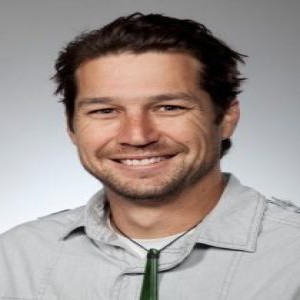
Monday Mar 14, 2022
089: Biocultural relationships with Noa Kekuewa Lincoln
Monday Mar 14, 2022
Monday Mar 14, 2022
In this episode Michael speaks with Dr. Noa Kekuewa Lincoln, a professor in the department of tropical plant and soil sciences at the University of Hawaii at Manoa. Noa’s specialty areas include biogeochemistry, ethnography, and archaeology of traditional farming methods. Noa tells Michael about his work on Hawaiian farming systems and the Hawaiian concept of Kuleana as a combination of both a right to and respect for the environment. Noa also talks about the intrinsic power of stories and the importance of interdisciplinary work in enabling us to tell compelling stories about our relationship with the environment.
References and resource:
Another interview with Noa on Science Friday: https://www.sciencefriday.com/person/noa-kekuewa-lincoln/
Lincoln, N. K., Rossen, J., Vitousek, P., Kahoonei, J., Shapiro, D., Kalawe, K., Pai, M., Marshall, K., & Meheula, K. (2018). Restoration of ‘Āina Malo‘o on Hawai‘i Island: Expanding Biocultural Relationships. Sustainability: Science Practice and Policy, 10(11), 3985. https://doi.org/10.3390/su10113985
Lincoln, N. K., & Ardoin, N. M. (2016). Cultivating values: environmental values and sense of place as correlates of sustainable agricultural practices. Agriculture and Human Values, 33(2), 389–401. https://doi.org/10.1007/s10460-015-9613-z
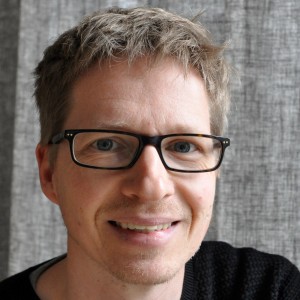
Thursday Mar 10, 2022
IJC #4: Historical commons in the Low Lands with Maurice Paulissen
Thursday Mar 10, 2022
Thursday Mar 10, 2022
Frank van Laerhoven is speaking with Maurice Paulissen.
Is it a historian? Is it an ecologist? No, it is a landscape historian! Maurice is one of the many commons scholars that cannot be easily categorized by means of a disciplinary label. He is also an exponent of a long tradition within our domain of researchers for whom “going to the field” means “going to an archive” and that manage to reconstruct commons governance 500 or more years back.
Maurice co-authored an IJC publication entitled ‘Dire Necessity or Mere Opportunity? Recurrent Peat Commercialisation from Raised Bog Commons in the Early Modern Low Countries’ together with Roy van Beek, Serge Nekrassoff, Edward Huijbens, and Theo Spek.
The episode starts with an half-hearted attempt to pin down Maurice in terms of academic disciplines (an attempt that partly fails). It then continues with a reflection on the article that served as an excuse for the conversation. That article contests the simplistic notion that in early modern Europe, shared resource management solutions offered by markets or governments were not sufficiently reliable, and therefore fell into the lap of autonomous communities. It is convincingly shown that markets (both local and regional), governments (at various levels, in various forms) and more or less autonomous communities play competing and complementary roles in the governance of peat land – roles that vary over time and place. The conversation ends with a reflection on whether a study of commons governance 500 years ago can be useful for commoners, today.
For more analyses of historical commons, also check out the following IJC titles:
- Laborda-Pemán, M., & De Moor, T. (2016). History and the commons: a necessary conversation. International Journal of the Commons, 10(2).
- Farjam, M., De Moor, T., van Weeren, R., Forsman, A., Dehkordi, M. A. E., Ghorbani, A., & Bravo, G. (2020). Shared patterns in long-term dynamics of commons as institutions for collective action. International Journal of the Commons, 14(1).
- Takahashi, T., Matsushita, K., Yoshida, Y., & Senda, T. (2019). Impacts of 150 years of modernization policies on the management of common forests in Japan: a statistical analysis of micro census data. International Journal of the Commons, 13(2).
- Echegaray, E. P. (2011). Communities and sustainability in medieval and early modern Aragon, 1200-1600. International Journal of the Commons, 5(2).
- Chanda, S., Patnaik, A., & Chatterjee, S. C. (2021). The Courtesan Project and the Tawa’ifs’ Cultural Commons. International Journal of the Commons, 15(1).
- Castro, Á. C. (2021). Early Medieval Commons? Or How the History of Early Medieval Europe Could Benefit from a Necessary Conversation: The Case From NW Iberia. International Journal of the Commons, 15(1).

Sunday Mar 06, 2022
088: Institutional and behavioral economics with Achim Schlüter
Sunday Mar 06, 2022
Sunday Mar 06, 2022
In this episode, Stefan interviews Achim Schlüter. Achim is a Professor of Social Systems & Ecological Economics at Jacobs University in Bremen, Germany. He is also the Social Science Department leader and head of the Institutional and Behavioral Economics working group at the Leibniz Center for Tropical Marine Research (ZMT). He has interests in processes of institutional development and change, privatization and what influences human behavior, where he has focused attention on coastal systems, specifically in Indonesia, Peru and Senegal, among others.
In the episode, Stefan and Achim discuss his career path focused on privatization processes and commons governance including his dual focus on behavioral experiments and qualitative institutional analysis. Later, collaboration challenges in science are explored, and challenges of doing research away from your home country.
Achim’s institutional webpage
https://www.leibniz-zmt.de/en/marine-tropics-research/who-we-are/achim-schlueter-en.html
Achim’s Google Scholar
https://scholar.google.de/citations?user=L5ONyegAAAAJ&hl=de
In Common webpage
https://www.incommonpodcast.org/
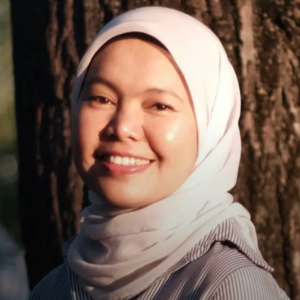
Friday Mar 04, 2022
Insight #33: Irina Rafliana on the importance of language
Friday Mar 04, 2022
Friday Mar 04, 2022
This insight episode is from full episode 048, Stefan's conversation with Irina Rafliana.
Irina is a science communication officer at the Indonesian Institute of Sciences (LIPI), and is also currently a PhD candidate at the German Development Institute in Bonn, Germany, where her research is focused on disaster sociology.
In this episode, Irina discusses the importance of language with Stefan in allowing for innovation and research to occur.
Indonesian Institute of Sciences (LIPI): http://lipi.go.id/
In Common website: https://www.incommonpodcast.org
Connect with us on Twitter: https://twitter.com/InCommonPod
Support us on Patreon: https://www.patreon.com/incommonpodcast
